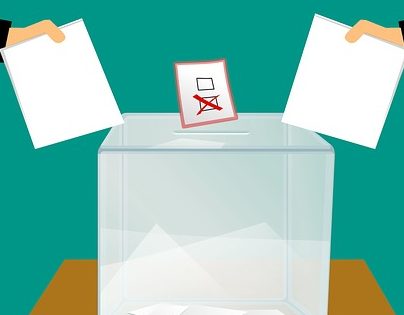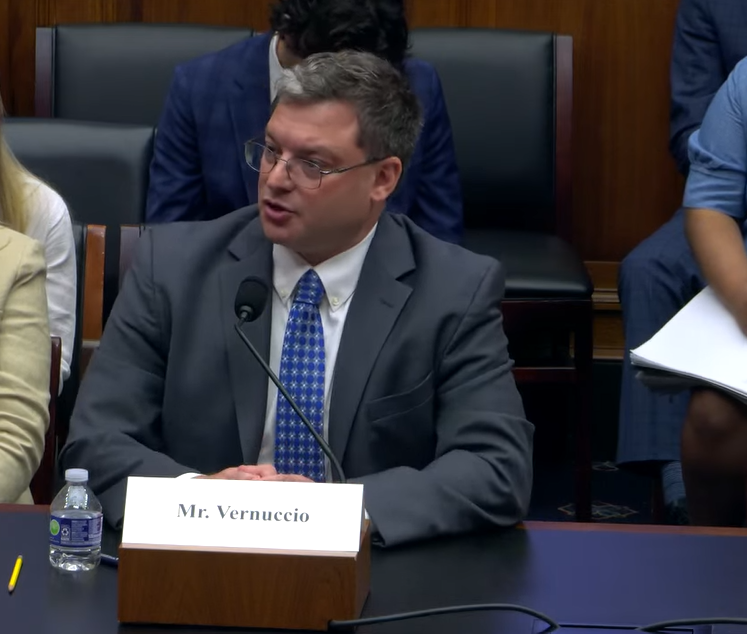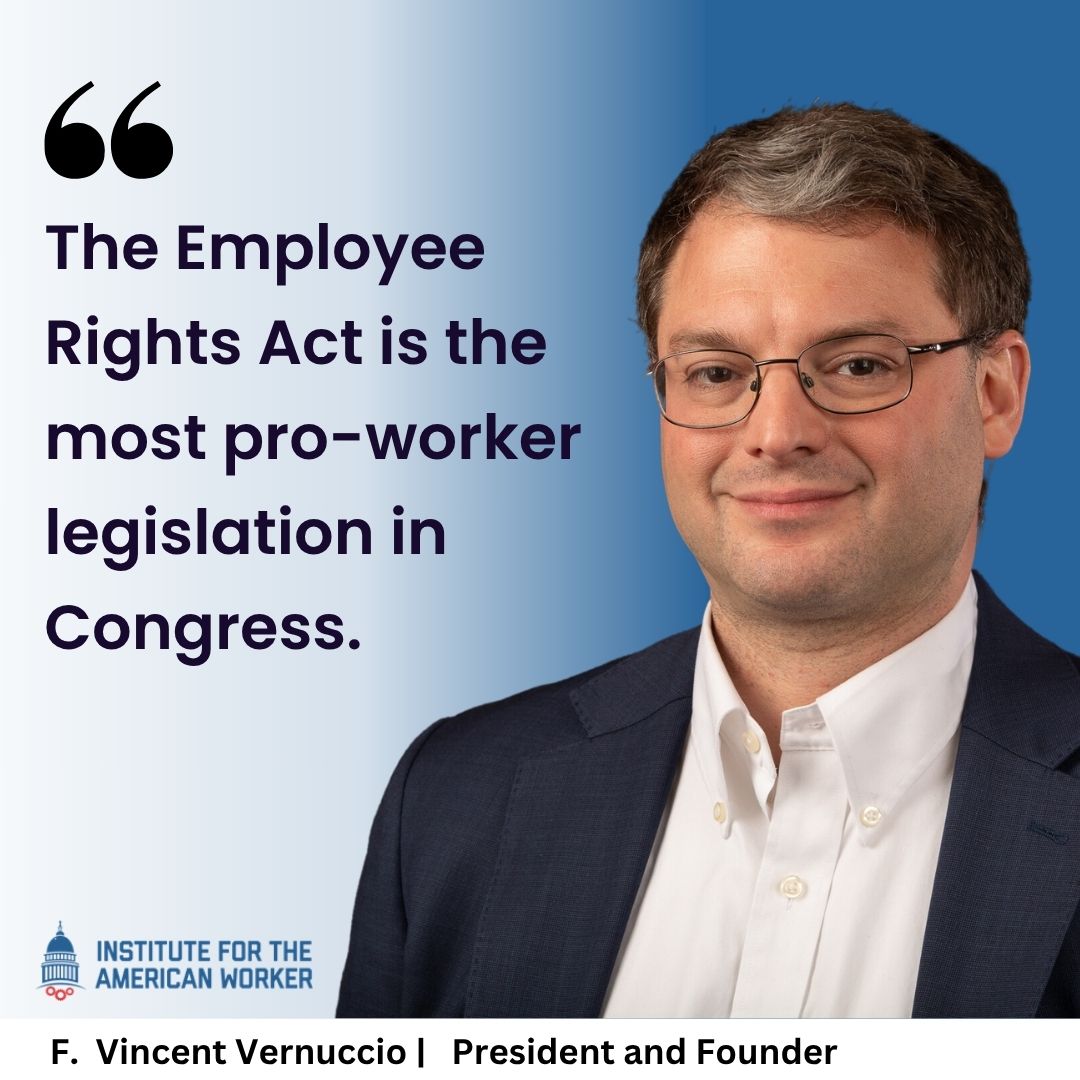Posts tagged Senate
A Republican-Led NLRB May Soon Revisit Expanded Remedies and Other Labor Precedents
October 30, 2025 // The HELP Committee’s approvals signal a likely realignment in the months ahead but not an immediate one, as it remains unknown as to when or whether the NLRB will have a quorum. A new NLRB majority may act quickly once seated to revisit recent precedents—not only Thryv, but also rules governing joint-employer status, independent-contractor classifications and union election procedures. The coming months will be a period of heightened uncertainty for employers navigating ongoing unfair labor practice matters.

Commentary: Trumpworld thinks overturning this Biden labor rule gives GOP a double-digit midterm elections boost
October 29, 2025 // Only 22% of respondents in Fabrizio’s poll supported the NLRB’s 2023 rule “that allowed unions not to use secret ballots,” with 64% opposed. Fabrizio wrote that Republican Congressional candidates “would benefit significantly from supporting overturning this unpopular rule.” “The initial generic ballot is a statistical dead heat, 44% Democrat – 43% Republican (D+1), but if the Republican candidate supported overturning the NLRB rule so workers could once again rely on secret ballots when voting to unionize, the Republican pulls into a 47% – 36% (R+11) lead, a 12-point shift,” the memo reads. “Among Swing voters, the Republican goes from 1-point ahead to 17-points.”

U.S. Senate Committee on Health, Employment, Labor and Pensions titled “Labor Law Reform Part 2: New Solutions for Finding a Pro-Worker Way Forward.”
October 20, 2025 // Wednesday, Oct. 22, I4AW's Vinnie Vernuccio will testify at a labor hearing held by the U.S. Senate Committee on Health, Employment, Labor and Pensions titled "Labor Law Reform Part 2: New Solutions for Finding a Pro-Worker Way Forward."
US Transportation Secretary threatens to fire absent air traffic controllers
October 14, 2025 // Last week, the president said some employees who are not at work might not receive retroactive pay once the government reopens. Air traffic controllers, though, are considered "essential workers" and are still required to carry out their duites. "When you come to work you get paid," Duffy said. "If you don't come to work, you don't get paid. That's the way we're going to do it."

Newt’s World Episode 899: Employee Rights Act
October 13, 2025 // Newt talks with Vincent Vernuccio, President of the Institute for the American Worker about the Employee Rights Act of 2025, a legislative proposal aimed at enhancing and safeguarding the rights of American workers while promoting fairness and accountability in the workplace. Introduced by Senator Tim Scott and Congressman Rick Allen, the bill represents a Republican vision for the workforce, focusing on empowering workers, improving unions, and fostering innovation and growth. Vernuccio highlights the outdated nature of current labor laws,

Senator Tim Scott Reintroduces the Employee Rights Act to Empower American Workers
October 8, 2025 // “The Employee Rights Act is the most comprehensive labor legislation of this Congress, from protecting the secret ballot and unionization elections, to safeguarding workers from harassment and protecting their privacy, to putting workers in control of their own destiny. It truly puts the American worker first. We applaud Senator Scott for his steadfast leadership and support of worker freedom,” said F. Vincent Vernuccio, President of the Institute for the American Worker. This legislation was cosponsored by Senators John Barrasso (R-WY), Kevin Cramer (R-ND), Mike Crapo (R-ID), John Hoeven (R-ND), Cindy Hyde-Smith (R-MS), Jim Risch (R-ID), and Tommy Tuberville (R-AL).
Frozen feud: How Trump and the Supreme Court helped put historic Whole Foods union bid on ice
October 7, 2025 // When the NLRB will regain members depends on how quickly the Republican-led U.S. Senate moves to confirm two nominees picked by Trump in July, Boeing's chief labor counsel and an NLRB career staffer. A Senate committee is set to hold hearings on Trump's nominees on Wednesday. An NLRB spokesman did not respond to a request for comment about the delays. William Cowen, the board's acting general counsel, in an August press release addressing efforts in several states to pass new labor protections said the agency's work has "largely been unaffected" by the lack of quorum.
Op-ed: When Workers Have Other Options: Rethinking Power in the Multi-Earner Economy
October 5, 2025 // Well, monopsony is the flip side: when one (or just a few) buyers dominate a market. In labor markets, that “buyer” is your employer. And when employers have monopsony power, they can pay you less than what your work is actually worth—because where else are you going to go? Here’s the thing: you don’t need to live in a company town with one employer to experience monopsony power. It happens if the cost of leaving your job is too high. Maybe you need the health insurance.
Commentary: Next BLS head needs be an innovator, not a loyalist
October 5, 2025 // BLS’s monthly jobs numbers now regularly include adjustments in excess of 100,000 jobs to prior months’ reported results, thanks to late survey responses trickling in. On top of that, technological innovations like rideshare apps have created new categories of jobs where it is unclear how, or even if, BLS data accounts for them. There simply has to be a better, more innovative way to gather data. Given the need for important and significant changes, the top job at BLS therefore needs to go to an economist committed to getting the data right the first time, who can withstand withering scrutiny and is not beholden to “That’s how we have always done it” thinking. It is a difficult, often thankless, job, and to find that person, the administration cannot make loyalty the most important factor.
A Senate bill seeks to restore collective bargaining for a huge swath of federal workers
September 22, 2025 // Warner was quick to point out what union representation for federal workers does not do. “Let’s be clear, a federal union doesn’t have the ability to strike, or negotiate pay or benefits,” Warner said. But, he said, union representation for federal workers is designed to prevent discrimination and unlawful firings, as well as offer protections for whistleblowers.
